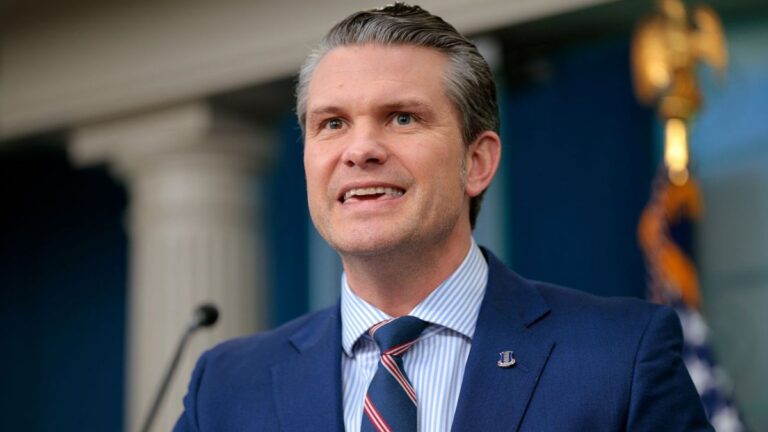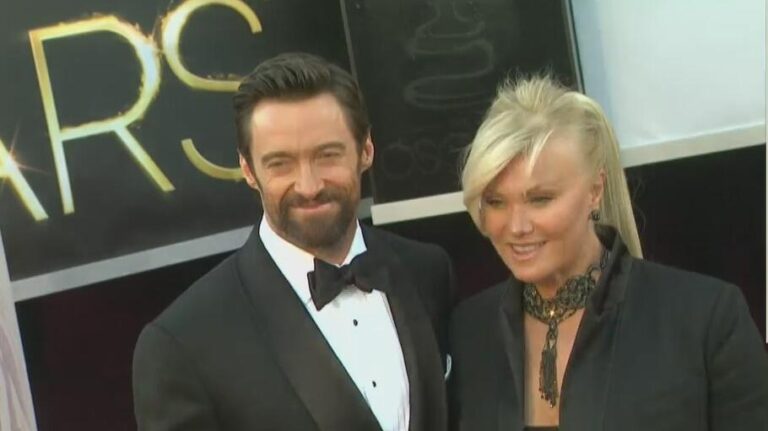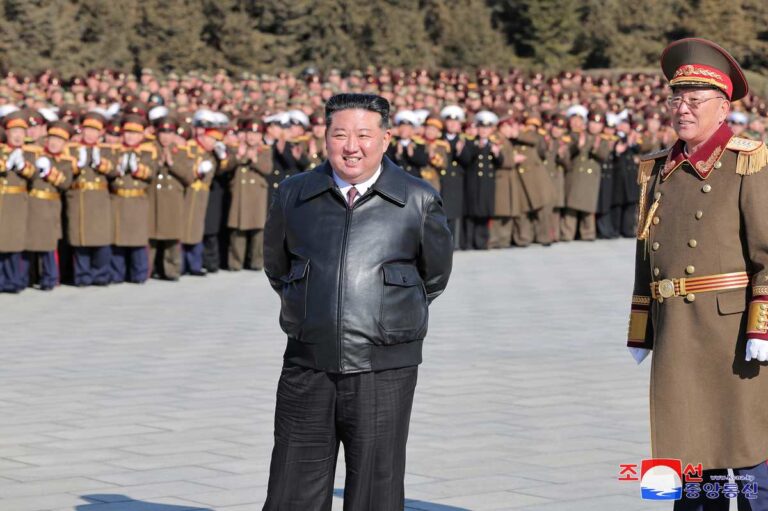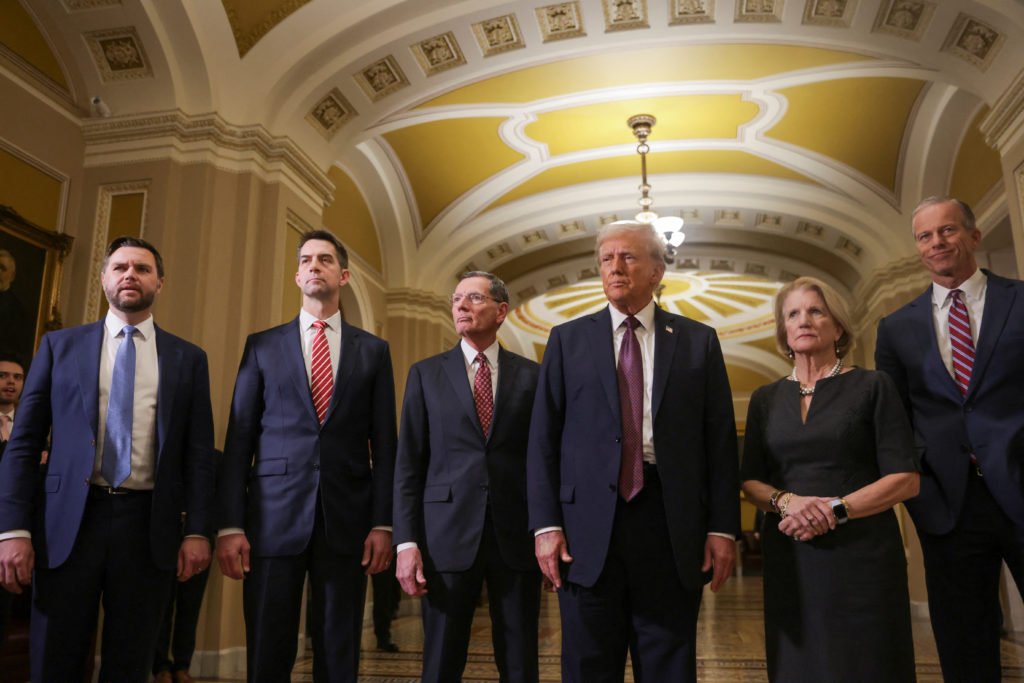
U.S. President-elect Donald Trump, U.S. Vice President-elect JD Vance, U.S. Senator Tom Cotton (R-AR), U.S. Senator John Barrasso (R-WY), U.S. Senator Shelley Moore Capito (R-WV) and Senate Majority Leader Sen. John Thune (R-SD) look on, after a meeting with Republicans in Congress at the U.S. Capitol building in Washington, U.S. January 8, 2025. REUTERS/Jeenah Moon
“How Trump’s Foreign Policy Could Reshape America’s Global Role in 2025”
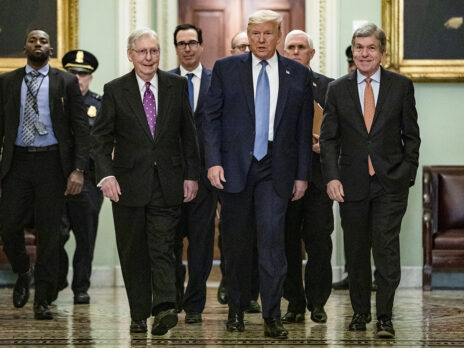
Imagine this: A U.S. president who once promised to “put America first” now openly talks about expanding American influence—even if it means taking a more aggressive stance abroad.
That’s the surprising shift happening in Donald Trump’s 2024 campaign. After years of criticizing foreign wars, Trump is now hinting at policies that critics call “soft imperialism”—using economic and military power to dominate global affairs without full-scale invasions.
Is this a strategic evolution or a contradiction of his original “America First” vision?
In this article, we’ll break down:
✔ What Trump’s new foreign policy looks like
✔ Why he’s shifting from isolationism to expansionism
✔ How this could impact the U.S. and the world
1. From “America First” to “America Dominates”?
The Original Promise
In 2016, Trump ran on:
✔ No more “endless wars” (Iraq, Afghanistan)
✔ Tough trade deals (China tariffs, renegotiating NAFTA)
✔ Less NATO involvement (“Why are we paying for Europe’s defense?”)
The New Tone in 2024
Now, Trump is pushing:
✔ More military leverage (threatening Mexico over cartels)
✔ Expanding U.S. economic control (banning TikTok unless sold to U.S. owners)
✔ Stronger alliances—but only if they benefit America
Key Quote:
“We have to be strong enough that nobody even thinks about challenging us.” – Trump, 2024 rally
2. Is This Imperialism? The Debate
What Is Imperialism?
Traditionally, imperialism means a powerful country controlling weaker ones, either by:
✔ Military force (like the British Empire)
✔ Economic pressure (like China’s Belt and Road Initiative)
Trump’s Version: “Soft Imperialism”?
Trump isn’t calling for occupying countries, but his policies suggest:
✔ Forcing deals (like banning TikTok unless it obeys U.S. demands)
✔ Using tariffs as weapons (China, Europe trade wars)
✔ Threatening military action (Mexico, North Korea)
Critics say: This is imperialism without colonies—using power to control, not conquer.
Supporters say: It’s just smart negotiation—making America stronger.
3. Why the Shift? 3 Possible Reasons
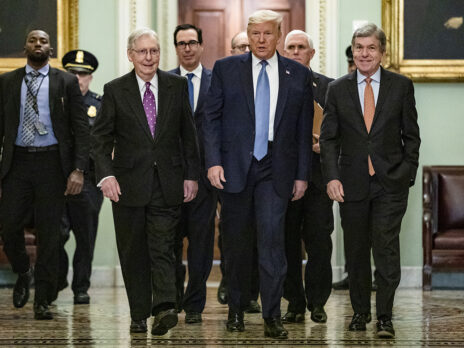
1. The World Has Changed
✔ China’s rise (Trump sees them as the #1 threat)
✔ Russia’s war in Ukraine (shows weakness invites aggression)
✔ Global instability (Middle East, Taiwan tensions)
2. Learning from His First Term
Trump’s “America First” policies had mixed results:
✔ Good: Stronger economy, no new wars
✔ Bad: Trade wars hurt farmers, NATO tensions
Now, he may want a tougher, more dominant approach.
3. Political Strategy
✔ Hardline voters love strong leadership
✔ Business interests want U.S.-controlled global trade
4. How This Could Impact the World
A. More U.S. Economic Control
✔ Tech dominance (forcing TikTok, Huawei out of the West)
✔ Energy leverage (drilling more oil to weaken OPEC)
B. Military Threats Over Wars
✔ No full invasions, but more drone strikes, sanctions, and threats
✔ Possible Mexico intervention (if cartels aren’t stopped)
C. Strained Alliances
✔ Europe may resist Trump’s demands
✔ China & Russia could push back harder
5. What Experts Are Saying
Supporters’ View
“Trump isn’t an imperialist—he’s a realist. The world respects strength, and he’s delivering it.” – Conservative policy analyst
Critics’ View
“This is empire-building disguised as patriotism. Forcing other nations to obey America is still imperialism.” – Foreign policy professor
6. What Comes Next?
If Trump wins in 2024, expect:
✔ More aggressive trade policies
✔ Harder stance on immigration (possibly military action at the border)
✔ Bigger focus on dominating tech & energy markets
The big question: Will this make America stronger or just more isolated?
Final Thought: A New Kind of American Power?
Trump’s foreign policy is evolving—not reversing. He still hates “stupid wars,” but he’s open to using U.S. power in new ways.
Whether you call it “imperialism” or just “strong leadership,” one thing is clear: A second Trump term could redefine America’s global role.
What Do You Think?
Is Trump’s shift a smart strategy or a dangerous power grab? Comment below!

